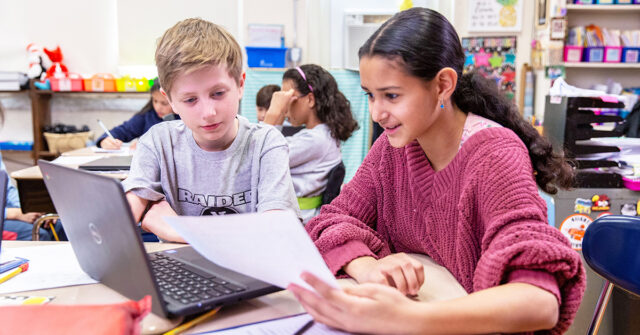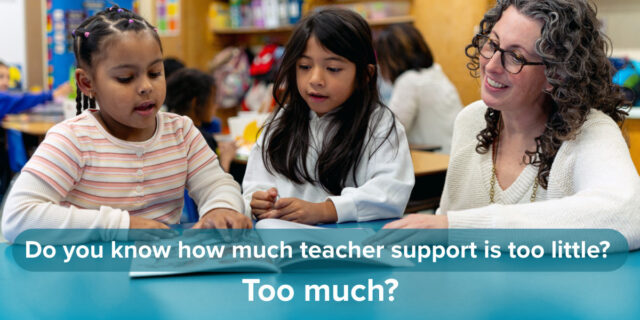
Welcome back to the Heinemann Professional Development Professional Learning Community (PLC) series. We hope you are enjoying our new format for the 2017-2018 year!
Each month, we share 2 posts designed to provoke thinking and discussion, through a simple framework, incorporating mini-collections of linked content into your professional development time.
This month, our posts will invite us to welcome curiosity, inquiry, and action for our classrooms and school communities.
by Jaclyn Karabinas
♦♦♦♦
![]() Connect
Connect
The power of technology allows us to easily act on a connection with stories, supporting projects or organizations linked to meaningful causes. A simple scroll through social media allows you to hear a plea for help and give with a simple click of a button.
Think of any causes you supported in the past few years. Was it to grow research? Raise awareness? Crowdsource funding? Why did you make these choices? Did the story touch you? Have you or a family member found yourself in a similar position of need?
![]() Consider
Consider
As citizens, we act not solely by connection to a story, but because of a surging sense of obligation to shine a light on or lift a cause. Yet, a set of skills accompanies this action: listening, questioning, researching, communicating, and empathizing, just to name a few. Where better to build these skills than among peers in school?
Here is your guiding question to anchor your thinking for this learning sequence:
What is the value of students taking new learning—born from inquiry—into action in their world?
![]()
Educate
Creating skilled, empathetic, engaged citizens sounds amazing! It is inspiring, and important.
It also sounds incredibly daunting! In this episode of the Heinemann podcast, school innovation consultant and author Steve Zemelman provides us real school examples and makes a strong case for the benefits of this kind of work in schools.
As you listen to the episode, note what sticks in your mind as clear benefits for not only student learning, but true engagement in learning. Jot down any questions that come to mind as you listen to help you confront future barriers as well as discover pathways to making this a reality.
![]()
Reflect
Watch a short clip to hear what Upstanders co-authors Sara Ahmed and Smokey Daniels have to say about what really needs to occur first to get students to a place of civic action ignited by a sense of obligation.
When you finish, cross-check your notes from the podcast with your takeaways from this clip. Where does empathy meet action?
![]()
Practice
What is likely to be the narrative of the classrooms described by Steve, or Sara and Smokey? What is the narrative of your classroom?
Spend a few minutes to think and write about your response to these questions. Allow yourself to be honest about the story students might tell about what it means to be in your school or classroom.
If you like your response, be sure to note why. What is it about the narrative of your classroom that conveys your beliefs in teaching and learning? If you don’t like your response, what is the first piece you want to recreate?
![]()
Extend
Read about the student-driven inquiry that unfolded, inspired by a 4th grader’s memoir in Writing Workshop, in this piece by instructional coach and consultant Jaclyn Karabinas.
It’s important to note that while this piece begins with another example of inquiry-based civic action in a real classroom setting, it further details her own inquiry process involving ways to make this part of the classroom narrative versus a “one and done” project.
![]()
Refine
What is the best way to determine the right topics for inquiry and action? Listen to your students, of course!
Now that you are creating space in your mind and plan book, opportunities will arise in many places. Listen for student questions and sense of urgency in:
- conversations during read aloud or shared readings
- reactions to a video
- analysis of data relevant to students’ families or school community
- student writing
- student news—whether personal, family, or from the local community
In his piece (also linked below for further reading), “How Linking Powerful Learning to Students’ Social Action Can Transform Education At All Grade Levels”, Steve Zemelman outlines four steps students will make in this process:
- Identifying issues important in their lives and community, and deciding on one to address
- Researching the chosen issue and deciding how to change or improve the situation
- Planning an action, including determining a goal for change; identifying who or what body in the community has power to make the change; and deciding how to approach that person or persons
- Carrying out the action
![]()
Act
Once you sense that students are ready to pursue a question and plan for action, create a shared vision together so that everyone has the same goal in mind as research begins, materials gathered, jobs delegated, and information outlined.
You might be tempted (or required) to pre-list standards and skills that will be addressed during your learning adventure. If so, keep your list short and focused without trying to anticipate every possible skill or standard that might surface. Use your teacher intuition—teach strategies or mini-lessons when the need arises. If you pre-plan too much, students will smell the shift of ownership to teacher-driven unit, which will diminish (if not extinguish) agency.
Note what will be most crucial for overall success (ie: specific vocabulary, standards addressing reading for information, determining importance etc.), keeping in mind that numerous skills will be, by nature, strengthened during this process, and that students will learn and grow in very individual ways.
When this experience comes to a close, revisit the guiding question and reflect as a group: What is the value of students taking new learning—born from inquiry—into action in their world? Processing this guiding question with students will provide valuable insight as well.
Be sure to also note standards, skills, epiphanies, moments, and effective mini-lessons that emerged along the way. Information you uncover through reflection not only will solidify your belief in the process, but will help you share your story with others so we can build a community of educators growing citizen-ready students.
Sign up to receive our PLC Series via email by clicking here.
>>> For Further Reading:
-
How Linking Powerful Learning to Students’ Social Action Can Transform Education At All Grade Levels by Steve Zemelman
-
Listening: An Essential Social Justice Practice by Amy Bintliff
Check out Steve Zemelman’s blog Civic Action in Schools for many more posts and resources to support this work in your school.
♦♦♦♦
Looking for more PD?
Online: Have you seen all of our On-Demand, video-rich, self-paced courses? Click here to browse single, mini, and full-session courses by authors such as Regie Routman, Jennifer Serravallo, Sue O'Connell and more!
Off-Site: Immerse yourself in an inquiry weekend! Join us in Santa Fe for a Multi-Day Institute:Teaching with Student-Directed Inquiry: Pathways to Literacy, Empathy, Achievement, and Action.
On-Site: Heinemann’s Speakers & Consulting Authors are thought leaders in how to create successful classroom and school environments based on respect, collaboration, empathy, and positivity. Find out more by clicking here!



